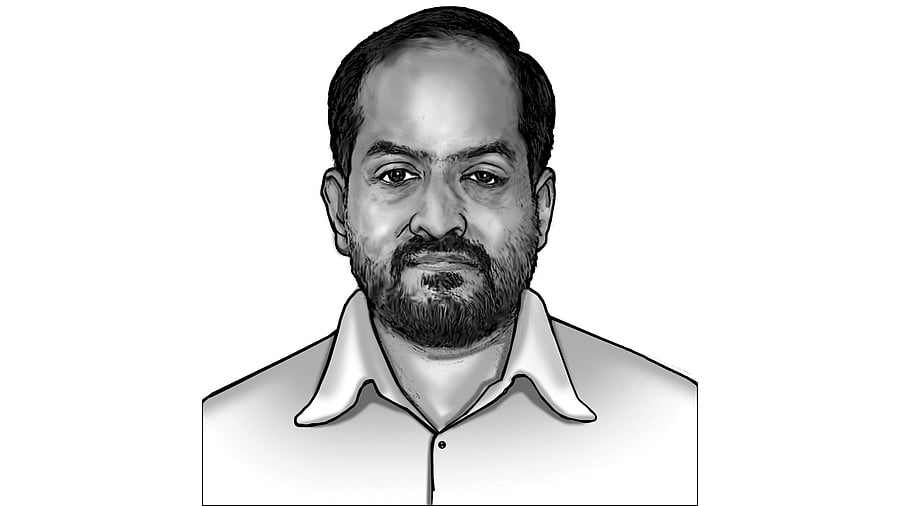
Venkatesh Nayak wakes up every morning thinking someone somewhere is hiding something.
Credit: DH Illustration
For the first time in the history of the world’s largest democracy, a large chunk of the voting population is at risk of being disenfranchised. About 65 lakh men, women, and transpersons have been kept out of the draft electoral rolls published under the Special Intensive Revision (SIR) in Bihar. We know their names and location, thanks to the pressure for transparency mounted by opposition parties and public-spirited civil society actors through the Supreme Court, on an otherwise recalcitrant Election Commission of India (ECI). These provisionally ‘deleted voters’ constitute almost 9% of the 7.36 crore registered electors for whom Assembly elections were conducted in Bihar in 2020.
Two men produced before the Supreme Court last month said their names do not appear on the draft rolls because they have been declared ‘dead’ during the SIR. A week later, two senior nurses of a prestigious government hospital in Delhi stood up amidst an RTI workshop I was conducting there and lamented that their names had also disappeared from the draft rolls. Nobody had bothered to tell them why. Thanks to the Supreme Court’s transparency directive, I could advise them to check the ‘deleted list’, identify the reasons mentioned against their names – ‘absent’, ‘shifted’, or ‘dead’ (ASD) or ‘already registered elsewhere’, and fill up the appropriate forms to file objections and stake their claim for re-inclusion.
How many people on the ‘deleted’ list in Bihar will be re-enrolled remains to be seen. But very few people are aware of the legal position regarding the rights of ASD voters. Despite being on the ASD list prepared by the electoral bureaucracy during summary revision exercises, they can vote on polling day. Their votes must also be counted. Of course, they are required to satisfy the Presiding Officer about their identity, with permissible evidentiary documents, to vote in person or through postal ballots. The election laws and rules do not disenfranchise them just because they are on the ASD list.
But how many people on the ASD list successfully cast their vote in every election? Strangely, this is a sarkari secret. Even the 2024 Lok Sabha Election Atlas, which the ECI published earlier this year, with much fanfare, is silent about these figures as they are absorbed into the total voter turnout figures for every constituency. According to the ECI’s 2023 Handbook for Presiding Officers, polling agents are permitted to bring copies of the ASD list with them for ascertaining the identity of such voters who appear at the polling station, staking their claim. The Presiding Officer not only causes their names to be read out aloud, but also gets their thumb impressions in addition to their signatures on prescribed declaration forms. The Presiding Officer includes data about the number of such voters in the post-poll report, which the constituency’s Returning Officer (RO) scrutinises the very next day. The Chief Electoral Officer sends a consolidated scrutiny report for all constituencies to the ECI. But the ECI has not proactively published this segregated ASD voter data in recent memory.
RTI interventions in Karnataka last year revealed that even the scrutiny mechanism does not function with any degree of uniformity. The Uttara Kannada Lok Sabha constituency’s scrutiny report noted that in five polling stations, more than 10% of the ASD voters had cast their vote, but did not mention the total turnout. In Hassan, only 104 of the 22,659 voters on the ASD list for the entire constituency had voted, but there was no mention of such polling stations. In Dakshina Kannada, absentee voters’ data was absorbed into the figures for government servants who had used the postal ballot as they were on election duty. The scrutiny report of the Chikkaballapura constituency did not mention the ASD category at all. Most of the other ROs either rejected my RTI applications or maintained a studied silence. The constituency-wise Index Cards containing summary polling data, which the ROs send to the ECI after the results are declared (which I obtained through RTI), absorb ASD voter data into the category of postal ballots.
It remains to be seen if the Bihar SIR exercise eliminates the need for maintaining an ASD list altogether. But wherever ASD lists are used at the polling booth, data about such voters must be reported separately. These figures will be useful for deciding election petitions that allege ghost voting. More importantly, what procedures were followed before deleting the 65 lakh names in Bihar? I am awaiting RTI replies from the ECI and the CEO.
The writer wakes up every morning thinking someone somewhere is hiding something.